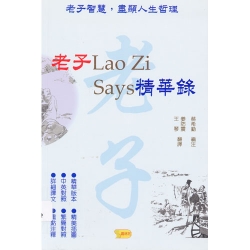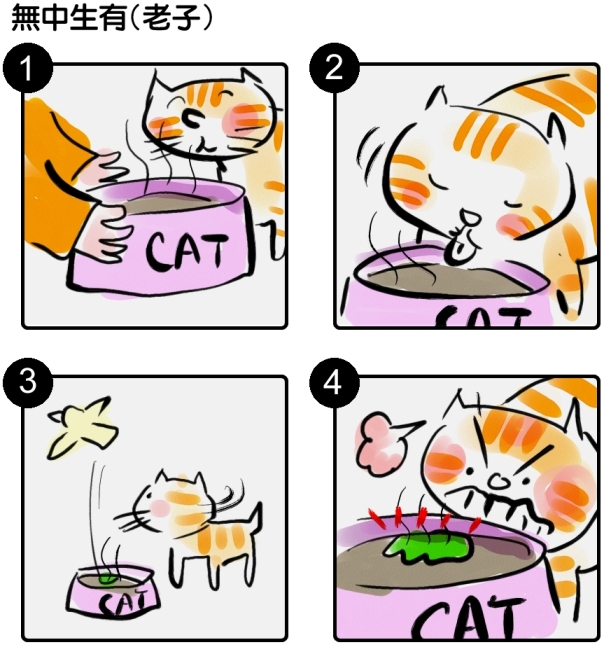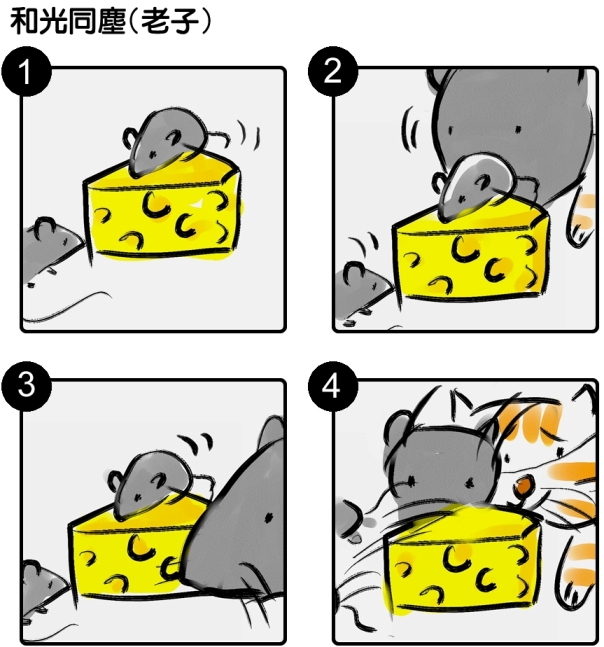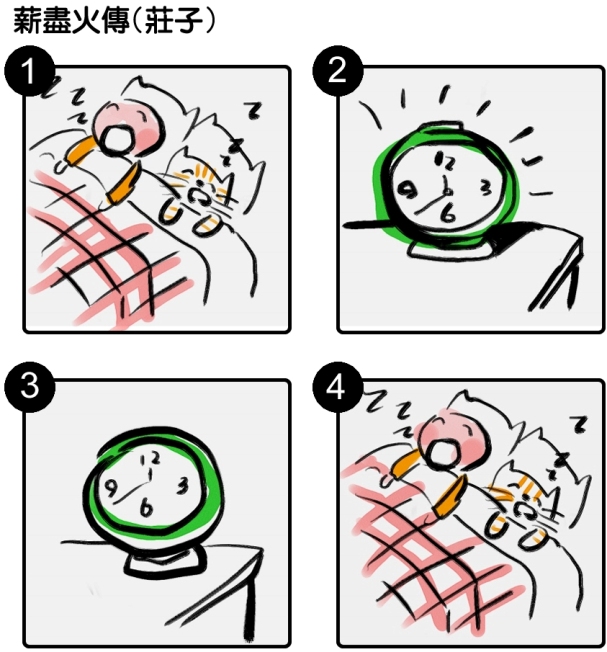老子精華錄(道可道,非常道)
 |
|
老子,姓李名耳,字聃,一說字伯陽。春秋末楚國人。古時有老氏而無李氏,故李耳即老耳。老子出世充滿傳奇色彩,不可詳考。
老子初為周守藏室之史時,也曾「著書言治亂之事,以幹世主」,史載孔子曾適周,問禮於他,孔子稱他是「乘風雲而上天」的龍。後見周室衰微,辭官西去。「至關,關令尹喜曰:『子將隱矣,強為我著書。』於是老子乃修書上下篇,言道德之意五千餘言而去,莫知其所終。」
老子王張「無為」,名言曰:「我無為而民自化,我好靜而民自正,我無事而民自富,我無欲而民自樸。」「是以聖人處無為之事,行不言之教。」「治大國若烹小鮮。」「以正治國,以奇用兵,以無事取天下。」
老子,姓李名耳,字聃,一說字伯陽。春秋末楚國人。古時有老氏而無李氏,故李耳即老耳。老子出世充滿傳奇色彩,不可詳考。
老子初為周守藏室之史時,也曾“著書言治亂之事,以幹世主”,史載孔子曾適周,問禮於他,孔子稱他是“乘風雲而上天”的龍。後見周室衰微,辭官西去。“至關,關令尹喜曰:‘子將隱矣,強為我著書。’於是老子乃修書上下篇,言道德之意五千餘言而去,莫知其所終。”
老子主張“無為”,名言曰:“我無為而民白化,我好靜而民自正,我無事而民自富,我無欲而民自樸。”“是以聖人處無為之事,行不言之教。”“治大國若烹小鮮。”“以正治國,以奇用兵,以無事取天下。”
Preface
Lao Zi's name was Li Er, with the courtesy name Dan (some say Boyang). He was a native of the State of Chu in the later years of Spring and Autumn Period. In ancient times, there was the surname Lao while no Li, and thereby Li Er was Lao Er. The birth of Li Er was legendary and textual details could not be found.
When Lao Zi worked as an archivist in the Imperial Library of the Zhou Dynasty court, he "wrote books on how to deal with state disorder, so as to serve the ruler." Historical documents record that Confucius once went to the State of Zhou and discussed ritual and propriety with Lao Zi. Confucius called him "a dragon roaring to the heaven by wind and cloud." Later as the authority of Zhou's court was diminishing, Lao Zi resigned from his post and went westward. "When he reached a pass, the director said with joy, 'Since you are going to live in seclusion, would you write a book for me?' And then Lao Zi compiled a book of two volumes with more than 5,000 Chinese words expounding on Tao, and left with nobody knowing his whereabouts."
Lao Zi favored "non-action" and that "Non-action, and yet there is nothing that is not done by it." His famous sentences include: "I do nothing, and the people of themselves submit. I am fond of keeping still, and the people of themselves act righteously. I take no trouble, and the people enrich themselves. I have no desires, and the people naturally remain in primitive simplicity." "The sage manages affairs by non-action, and teaches by saying nothing." "Governing a great state is like frying small fish (so frequent disturbance should be avoided)." "A state should be governed in a normal way, a war should be prosecuted in an unusual way, and a kingdom should be controlled by doing nothing."
愛民治國,能無知乎?《老子》第10章
[譚文]
愛民治理國家,能夠不用智慧嗎?
[注釋]
老子主張「無為」,所以他以「無以為」和「有以為」來分別上德和下德。在38章中說:「上德不德,是以有德;下德不失德,是以無德。上德無為而無以為;下德為之而有以為。」無為則無以為,有為則有以為。無以為則順其自然,而德全,表雖不德,實則全德,故謂有德。有以為則顯其所長,難免一偏,表雖不失德,實則其德不全,故謂無德。
無知:知,通「智」,智慧的意思。
愛民治國,能無知乎?《老子》第10章
[譯文]
愛民治理國家,能夠不用智慧嗎?
[注釋]
老子主張“無為”,所以他以“無以為”和“有以為”來分別上德和下德。在38章中說:“上德不德,是以有德;下德不失德,是以無德。上德無為而無以為:下德為之而有以為。”無為則無以為,有為則有以為。無以為則順其自然,而德全,表雖不德,實則全德,故謂有德。有以為則顯其所長,難免一偏,表雖不失德,實則其德不全,故謂無德。
無知:知,通“智”,智慧的意思。
您的評論: 注意: 評論內容不支持HTML代碼!
顧客評分: 差評 好評
請在下框輸入驗證號碼:




